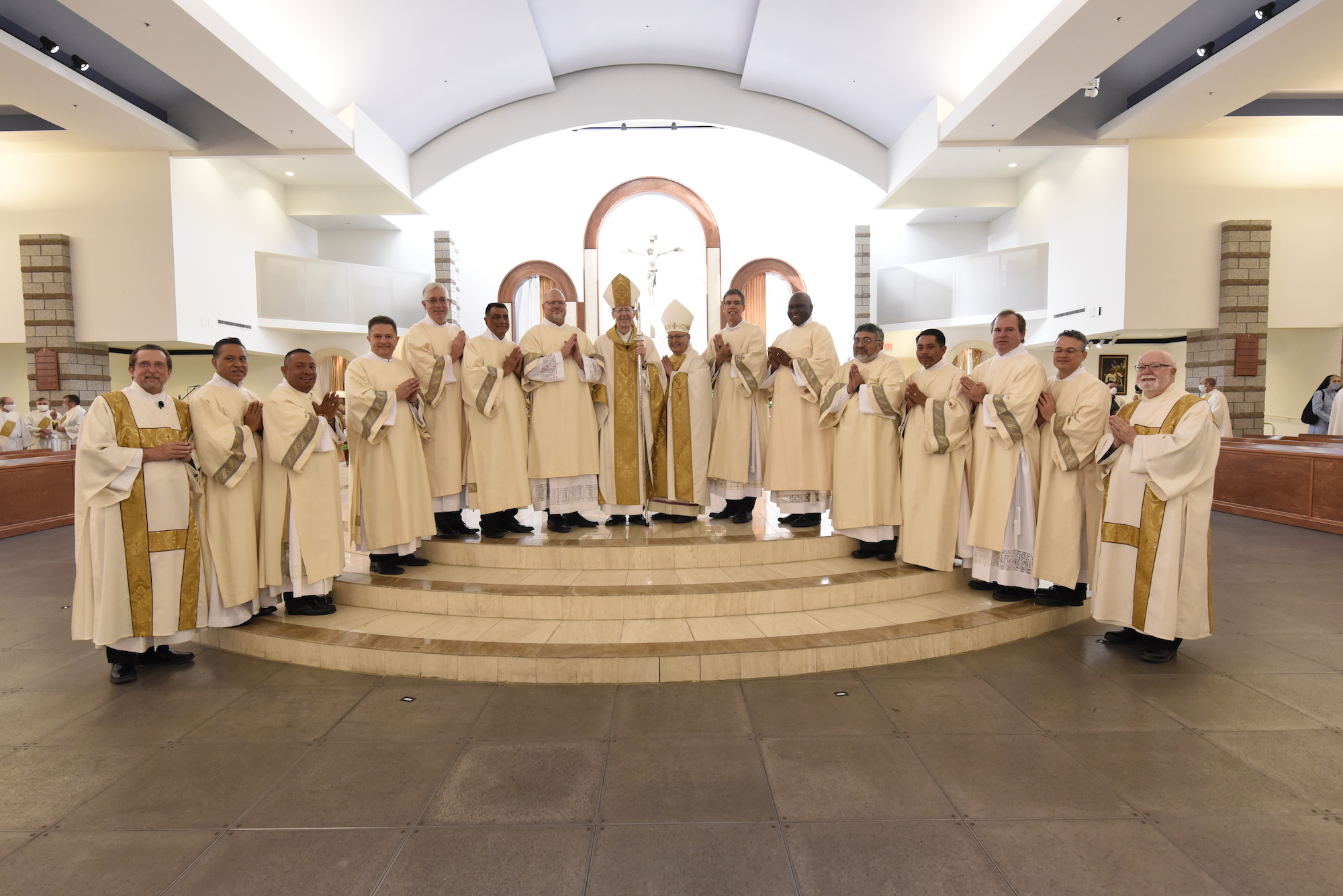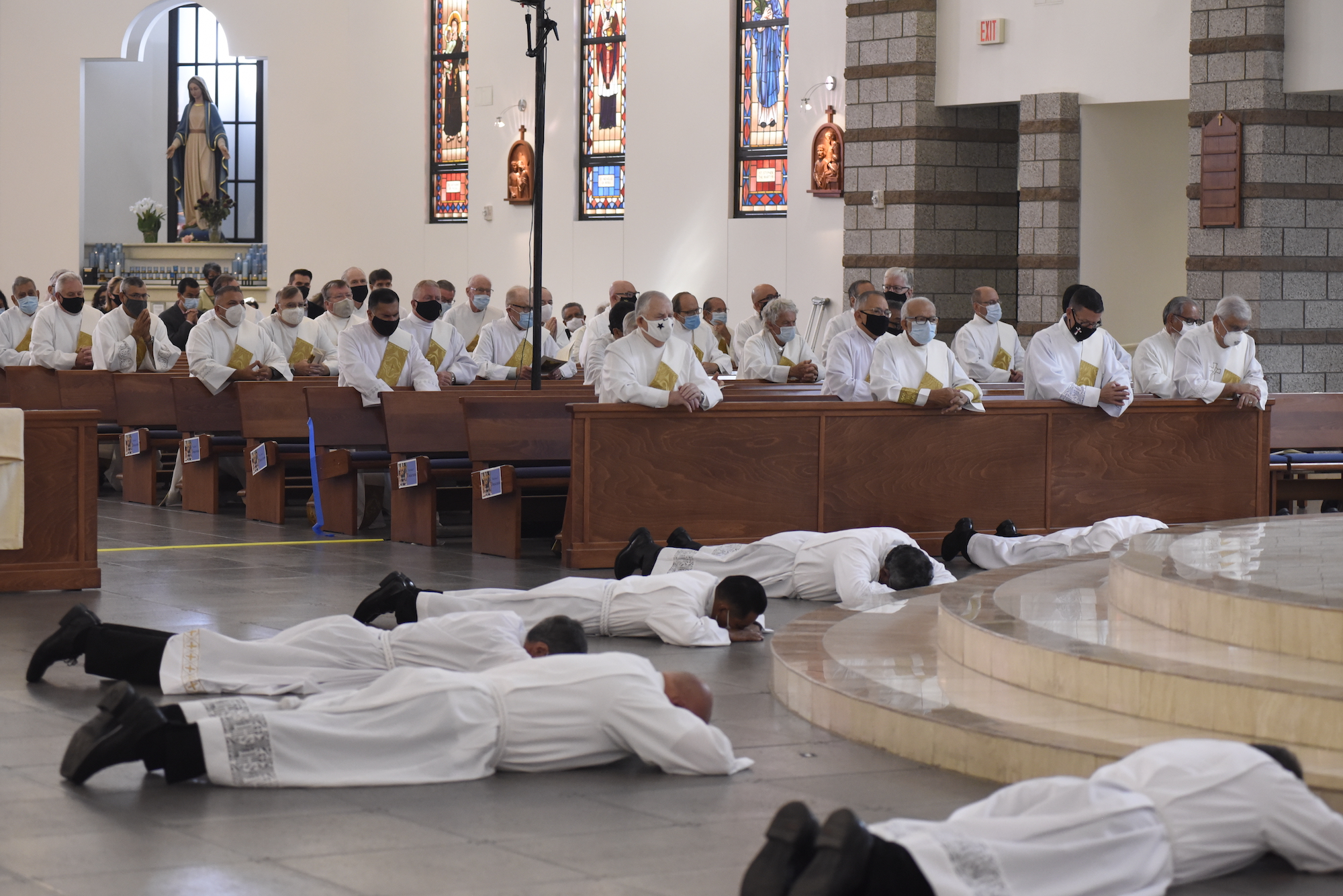
MESA — Twenty-five years ago, Deacon Juan Carlos Gonzalez was an unmarried teenage father. Twenty years ago, Deacon Handel Metcalf wasn’t even a Catholic. Fifteen years ago, although Deacon José Avila was a devout Catholic, the diaconate wasn’t even a consideration.
Yet, God called these three men, along with nine others, to the first order of clergy to proclaim the Gospel in word and deed. Bishop Thomas J. Olmsted ordained 12 men — with backgrounds and callings as diverse as the 12 Apostles — to the diaconate Nov. 7 at All Saints Parish in Mesa.
In reflecting on the call of the first deacons as described in Acts 6, Bishop Olmsted noted that their qualifications were not physical or financial, but that they be “filled with the Spirt and wisdom.”
“They needed to be deeply spiritual men, who had reputations for being wise, not in worldly wisdom, but in the Holy Spirit with Whom they were filled,” the bishop said.
Those first deacons were to assist in distributing food to those in need, but they were to feed both the body and the soul. When the Church gives food, it never gives food alone, said Bishop Olmsted. Rather, she serves the whole person.
“People need love more than they need tacos and tamales. There’s a kind of starvation that is much greater than food can satisfy,” he said. “When food is provided by followers of Christ, it is given in a way that helps the recipients to believe in Jesus and His life-giving word. It helps that person to have deeper, greater trust in God’s love, not only when facing food problems, but when facing other problems, especially those related to their dignity and their destiny.”
As a deacon, the men will be able to proclaim the Gospel and preach at Mass, prepare the altar for the Holy Sacrifice, distribute Holy Communion, preside over public prayer, administer Baptism, bless marriages, bring Viaticum to the dying and conduct funeral rites. Beyond a liturgical function, the deacons also teach and serve in carrying out the other spiritual and corporal works of mercy.
In the midst of a pandemic, the Office of the Diaconate for the Diocese of Phoenix adjusted the formation process for the 12 new deacons’ final year. This included splitting the classes in some cases to maintain guidelines earlier in the year requiring 10-or-less people. Instructors also offered several virtual classes. During the Ordination Mass, all 12 wore facemasks as they participated in the rite.
“Normally over the summer before they’re ordained, we spend a lot of time on liturgical training, but we actually asked their deacon mentors to take on some of that training so we could focus our class time on homiletics,” said Deacon Doug Bogart, associate director of formation for the diaconate office, adding that as candidates, they served as acolytes at their parishes even as churches were limited to live-streaming.
The cohort is the largest since 16 were ordained in 2012. Of the 12 men, six are Hispanic, reflecting the demographics of the diocese, including one who prefers discussing spiritual matters in English. Deacon Avila from Queen of Peace Parish in Mesa, told The Catholic Sun that when he first started attending bilingual community Rosary services, the opening and closing prayers were done in English.
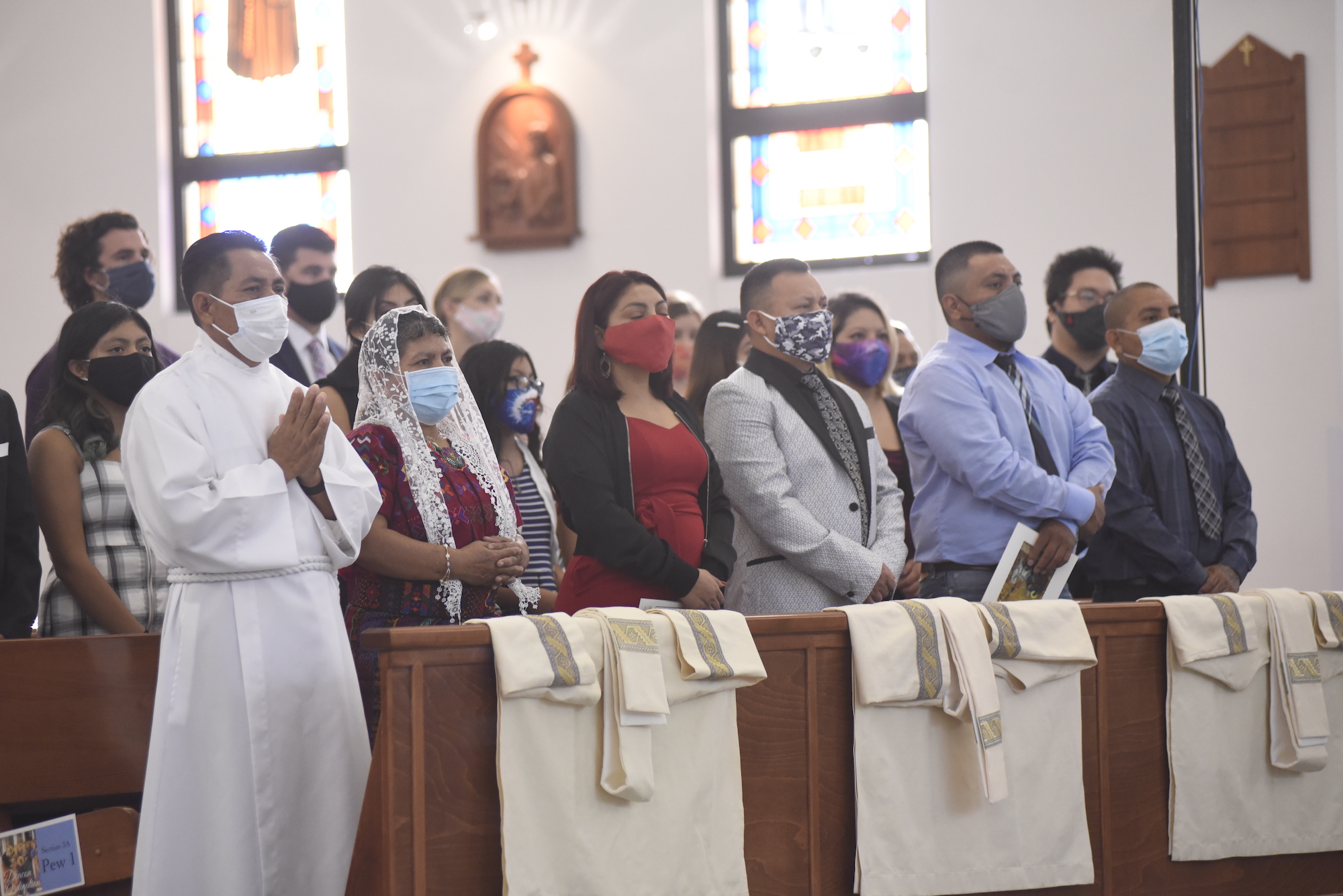

“So that’s how I learned,” he said. “Then, when I had a chance to lead them in Spanish, thankfully, I have made my own folder to lead it.”
Deacon Metcalf from Our Lady of Joy Parish in Carefree is the first black deacon to be ordained since 2008. Deacon Metcalf, who grew up Protestant, told the Sun that he felt a call to ministry even as a child. He knew the Bible and even attended a Baptist university, but he didn’t feel the Holy Spirit prompting him to pursue ministry in those avenues.
His wife, Andria, is a cradle Catholic, and while the two started raising their children Catholic and attended Mass as a family, after about 15 years, he started taking his family to a Pentecostal church. It was only when his Trinidadian mother-in-law would visit for several weeks at a time from New York that he started going to Mass again. She insisted on going to Mass while she was in town, Deacon Metcalf said, so he would accompany her.
“Every Sunday morning, I would bring her up here. After four or five weeks, she’d go back to New York, and I would go back to the Protestant church,” recalled Deacon Metcalf. “But on one of those visits, after she went home, I continued to come to Our Lady of Joy. I felt just this is where I should be. Eventually I asked them how to become Catholic, I started RCIA, and the rest is history.”
At 42, Deacon Gonzalez from Holy Cross Parish in Mesa is not only the youngest deacon in the cohort, but tied as the youngest deacon in the diocese. Canonically, permanent deacons must be at least 35 years old at the time of their ordination. Deacon Gonzalez thought he was “living the good life” 15 years ago. He would work 11 hours, then, instead of going home, he’d go out drinking with his friends.
“Finally, my wife gave up on me. She said, ‘You know, I think this isn’t going to work, let’s split up.’ That’s when it got me, ‘Wow, I’m going to lose my kids,’” he said.
Providentially, after leaving Mass one Sunday, a couple invited them to a marriage retreat. When the Blessed Sacrament was exposed, he told God, “Please save my marriage, and I’m going to serve you the rest of my life.”
Although they had two kids, he and Bernadett were not married in the Church, but that changed in 2008 when they received the sacrament of Matrimony. Now when he serves on men’s retreats, he tells participants, “‘I don’t care if you’re about to lose your family. If God can save my family, he can save yours. Open your heart to Jesus.’ I can’t tell you how many guys were able to save their marriages and families after that.”
Seminarian Nathan Blanchard witnessed his father, Gregory, ordained that day. Deacon Blanchard will serve at San Francisco de Asís Parish in Flagstaff. If the former is ordained, the two will be the only father-son deacon-priest pair in the diocese.
“It was a really powerful experience to see him laying down his life before God in such a concrete way,” said the younger Blanchard, who attends St. John Vianney Seminary in Denver and is scheduled to be ordained a transitional deacon in two-and-a-half years, God-willing. “I can only hope that one day God allows me to follow in my father’s footsteps.”
Jesús Acuña, not only witnessed the ordination of his father, Antonio, who will serve at St. Margaret Parish in Tempe, but also read the Second Reading in Spanish during the liturgy.
“It was a great honor to be able to read during this liturgy,” the younger Acuña said in an interview in Spanish. He added that during his father’s formation process, he witnessed a profound spiritual growth, “simply in the way he walks, how he talks, and communicates with people, the love he has.”
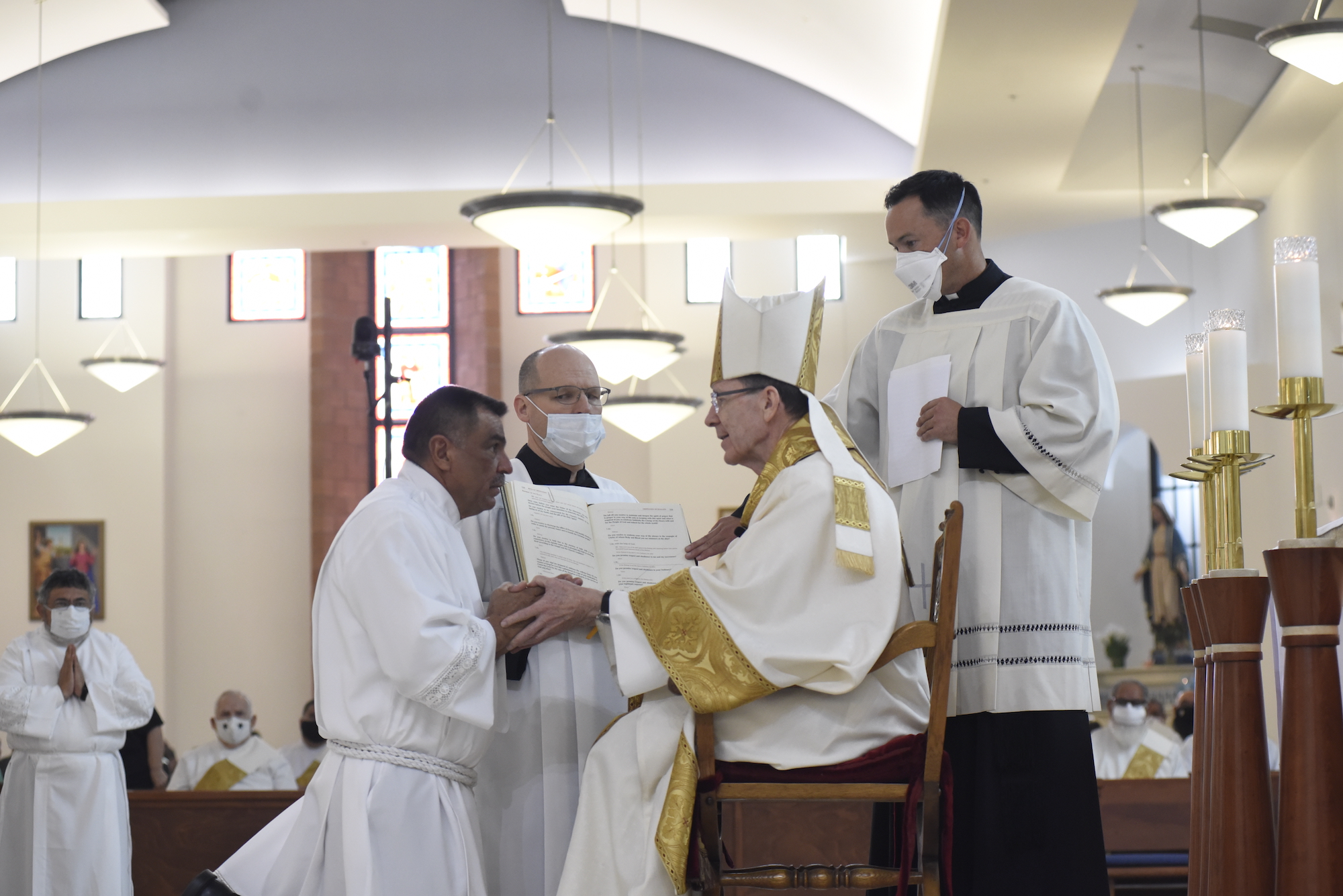

Deacon Alberto Juan’s oldest granddaughter Nieves Juan was among those to witness the family patriarch’s ordination. Deacon Juan will serve at Our Lady of Guadalupe Parish in Queen Creek.
“We’re going to have him blessing everything for us,” quipped the younger Juan. “We became closer to the Church as much as he did,” she added, reflecting on her grandfather’s formation impacted the whole family.
The night before their Ordination, the then-candidates publicly declared their oaths of fidelity to the bishop and his successors. Similarly, their wives publicly declared their consent to allow their husbands to serve the Church.
“It’s a change. It’s a call for battle. And it’s a new life, and a new grace and a new hope,” reflected Inez Rojas, whose husband Ivan will serve at St. Anne Parish in Gilbert. “It is an honor to give back to Jesus Christ what He has given me in my husband.”
In his homily in a Vespers service that night, Auxiliary Bishop Eduardo A. Nevares asked the men to reflect on their own marriages as they prepared for Ordination.
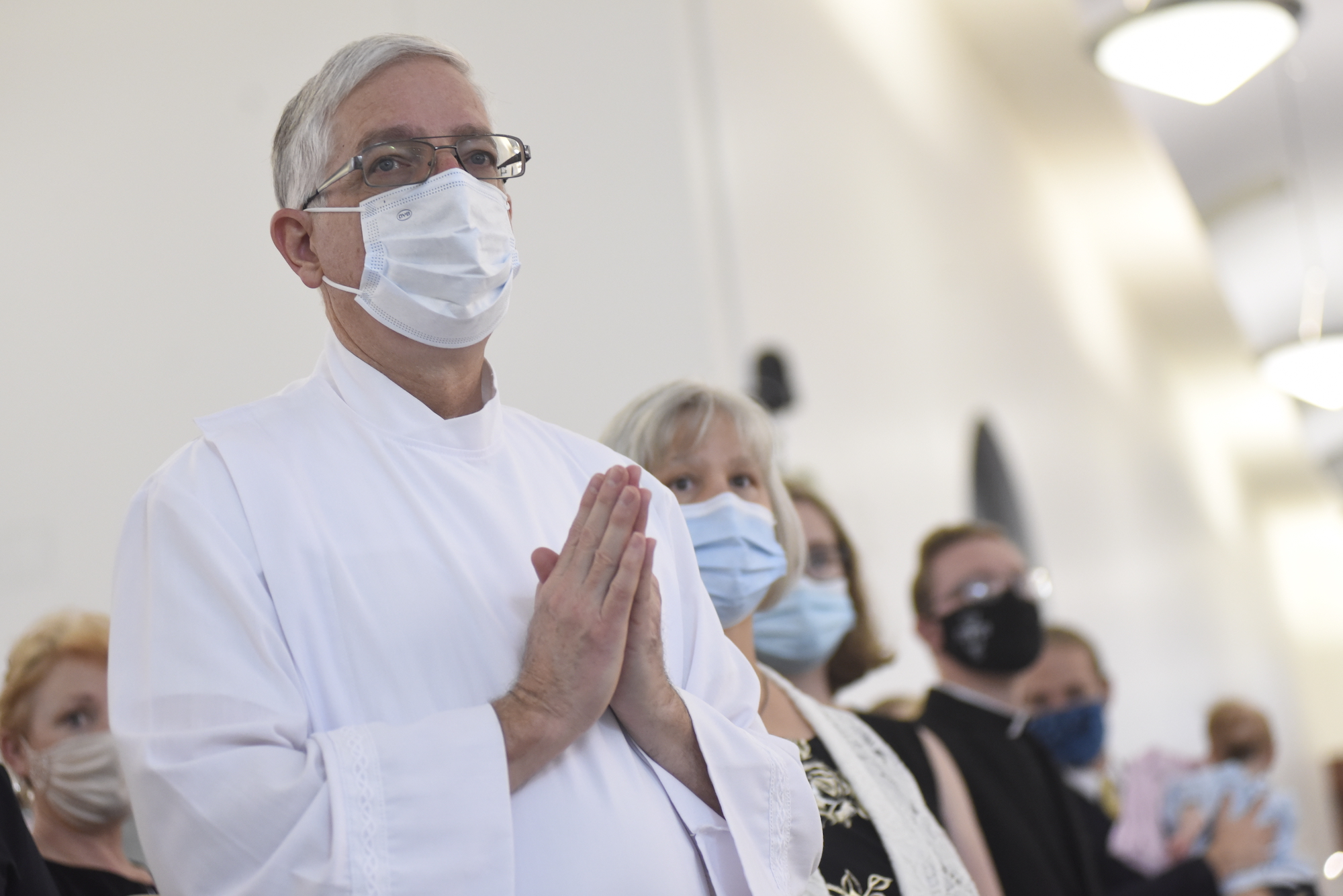

“Tomorrow, you candidates, will marry another bride. To honor your new bride, you will be the heralds of the Gospel,” Bishop Nevares said. “To be a herald of the Gospel, come to know the Word, to love the Word, to live the Word. Preach the Gospel — the Good News of salvation — whether convenient or inconvenient. Take the Gospel to all you meet.”
Noting that deacons are obligated to join in the prayers for the Universal Church by praying Morning Prayer and Evening Prayer from the Liturgy of the Hours, the bishop urged the deacons to be men of prayer.
“Be men enamored with the living presence of Jesus in the Precious Body and Blood, Soul and Divinity in the Most Holy Sacrament of the Eucharist,” added Bishop Nevares, before addressing their wives. “Be a lover of prayer as Jesus was, and, if possible, spend time doing prayer together. It’s more important that the two of you grow in the love of God, in the love of His Word, and in love for one another, in Jesus Christ.”



